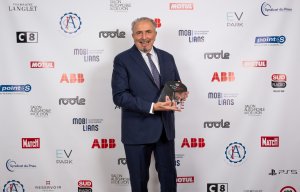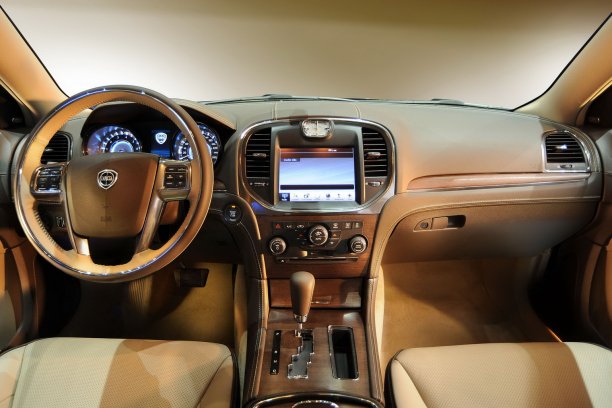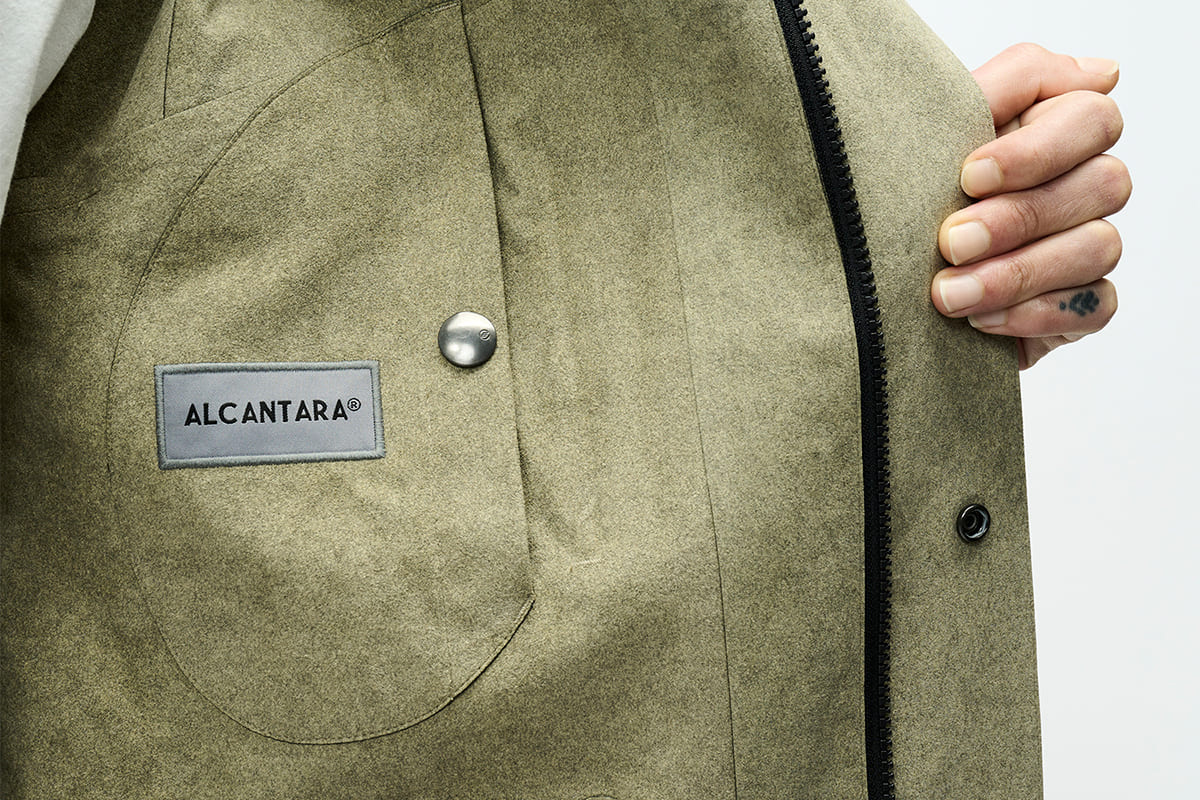
Automobile Club honour for Alcantara
Innovation in Textiles speaks to Alcantara chairman Andrea Boragno about the company’s progress and its unique approach to the multiple markets it serves.

28th February 2024
Innovation in Textiles
|
Italy
Alcantara, the Made-in-Italy luxury lifestyle brand, has had a high profile at the start of 2024, making headline appearances at museum, fashion and classic-car events around the world.
Among activities, the Chapter 1 collection by Massimo Osti Studio was launched and Alcantara presented it 2025 Spring/Summer collection at the Lineapelle exhibition in Milan. In addition, the Alcantara: Beyond Boundaries art exhibition opened in Seoul, South Korea, and a vintage Fiat Panda outfitted with an Alcantara interior was displayed at the International Concours d’Elegance (ICE) in St. Moritz in Switzerland.

This follows the 2023 selection of Alcantara for new vehicle interiors including the Alfa Romeo 33 Stradale, the Czinger 21C Blackbird and BMW’s Alpina, Vision Neue Klasse and XM models. In December, Alcantara also received the Coup de Coeur LR 66 Award at the 6th edition of the Automobile Awards 2023 held at the Automobile Club de France, as a brand capable of best interpreting the technical and stylistic trends of the automotive market. Lightweight, resistant, soft and elegant, Alcantara is the material chosen by the world’s leading automotive brands.
Innovation in Textiles: How would you describe Alcantara and what makes it unique in terms of how it is produced?
Andrea Boragno: Alcantara is the result of a proprietary and patented technology to which further patented improvements have been added over the years. What’s unique is that we combine very high-tech and automated phases of the production with Italian craftsmanship, especially in the final stages when it comes to customisation.
IIT: What is the brief history to its development and subsequent adoption by different industries?
AB: Alcantara started at the beginning of the 1970s and the very first high-profile designer to recognise its potential was Gianni Versace, followed by other well-known names such as Walter Albini and Halston, so its initial success was in the fashion business. We then moved into upholstery and our very first application in automotive interiors was in the Lancia Thema in 1984. This was a very significant model in placing a lot of attention on the interior and pairing beauty and comfort with performance. This car started the trend that remains to this day. At the beginning of the 1990s the use of Alcantara started to grow significantly with the Italian OEM car makers and then we became successful in French vehicles. We were also adopted by Volvo and began to work with the German OEMs.
In parallel we moved into many other sectors with different applications for the material, such as consumer electronics on smartphones and laptops, speakers, headphones etc. We also started to enjoy success in aviation with interiors for the airlines, as well as the marine industry.
A significant development over the last five years has been our concept of customisation. We are able to bring extremely customised solutions to the market, both stylistically and technically, which has been highly appreciated by the automotive and other industries. Technology and craftsmanship is the magic combination.

IIT: How does Alcantara differ from other artificial leathers/synthetic suedes?
AB: If you give Alcantara and one of its competing materials to a designer he or she would instantly be able to tell you the difference and which is the Alcantara. There are a number of technical properties that are typically unique about it – its lightness, breathability, resistance, softness and cleanability. It is warm during winter and cold during summer. It also provides grip, which is important in car seating during sports driving. It has a high level of light fastness and mechanical performance properties. In addition, what is important is that we are co-developing and co-designing the final product with our customers. We have a dedicated team of designers and technicians who do this. It’s a mutually interactive process through which we arrive at final, uniquely customised solutions.
Alcantara is the company, the product and also the brand, and branding is important. Alcantara and its values are well recognised in the markets we serve and for us this is very important. We are a very successful ‘ingredient brand’, in that our brand is used by other brands, so we have to integrate. At the same time, surveys have shown that two-out-of-three luxury car consumers worldwide associate the presence of Alcantara in a vehicle interior as an upgrading.
IIT: Please can you tell us about your decarbonisation plan and what it will entail?
AB: We are working on a circular economy using certified post -consumer recycled polyester and developing a technology that is capable of recovering end-of-life raw materials and production waste, and through depolymerisation, obtaining material for new applications. We also continuously work on the energy efficiency of the process and also on the efficiency of our supply chain. We use source fuel from renewable resources and our plan is to reduce emissions from the plant by 50% by 2030.
IIT: What are the sustainable milestones you have achieved so far to date?
AB: We became carbon neutral back in 2009 when nobody was talking that much about sustainability and global warming was not really considered a problem of the textile industry. We are currently carbon neutral through a process of compensation which we always said was not the final solution. In fact, the carbon neutrality certification is based on the offsetting of greenhouse gas emissions through certified and verified offsetting projects.
Compensation has many advantages, but at the same time we have to continue reducing our emissions. These projects aim to expand the use of renawable energy resources and to improve the health and social conditions of people in the poorest and most disadvantaged areas of the world.
At around the same time, we started with our plan for responsible procurement and continue to pay attention to the best practices. When we do LCAs to measure the impact of our activities we use a cradle-to-grave approach because we need to know exactly what’s happening up and downstream. We don’t think paying people to do the dirty work for us somewhere else is acceptable and have always adopted this system. Everything is certified by third parties and transparent in our sustainability reports because it is extremely important to be able to prove what we say we do, and also what we don’t do.
In recent years we have introduced a partially bio-based product and the new product line deriving from post -consumer recycled polyester, recycled through a mechanical process. We also provide full certification for our recycled polyester based on mass balance, which is essential – the best lab in the world cannot tell if a fabric is made from recycled or virgin polyester. I think this has been very appreciated by the top brands, including Ferrari, for instance, which is using Alcantara based on our recycled polyester.
IIT: What are the company’s immediate plans for 2024?
AB: We will continue in the direction we have been heading in the past few years and we have some exciting plans, especially in respect of sustainability, but we are not yet certain we will be able to accomplish them this year, so I better not talk about them yet.

Business intelligence for the fibre, textiles and apparel industries: technologies, innovations, markets, investments, trade policy, sourcing, strategy...
Find out more